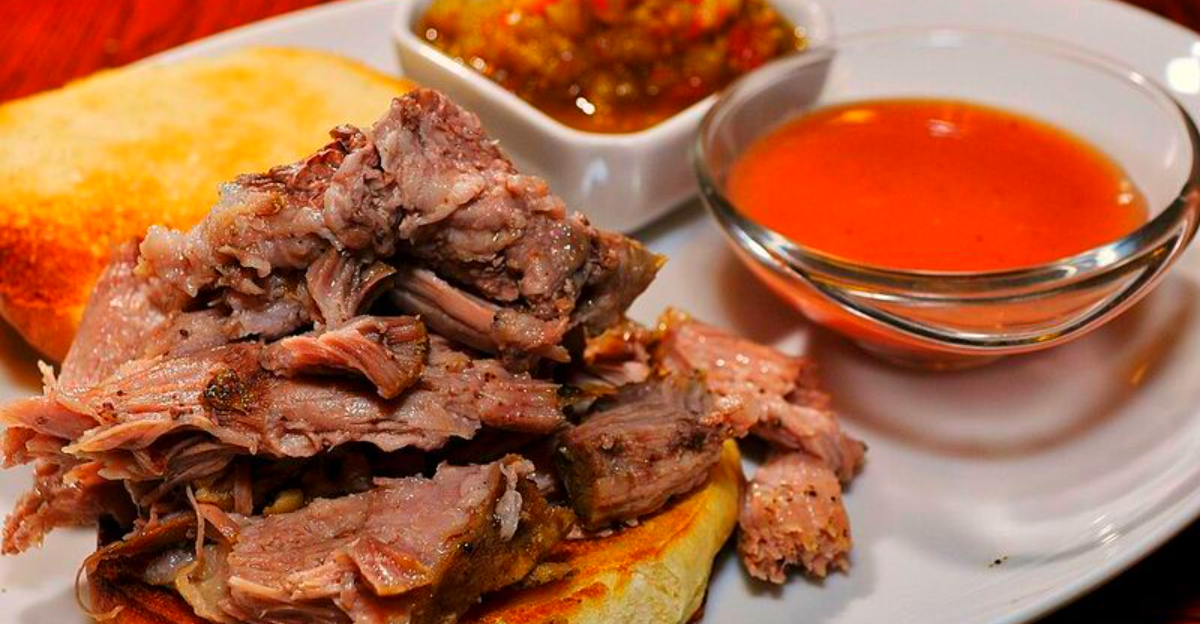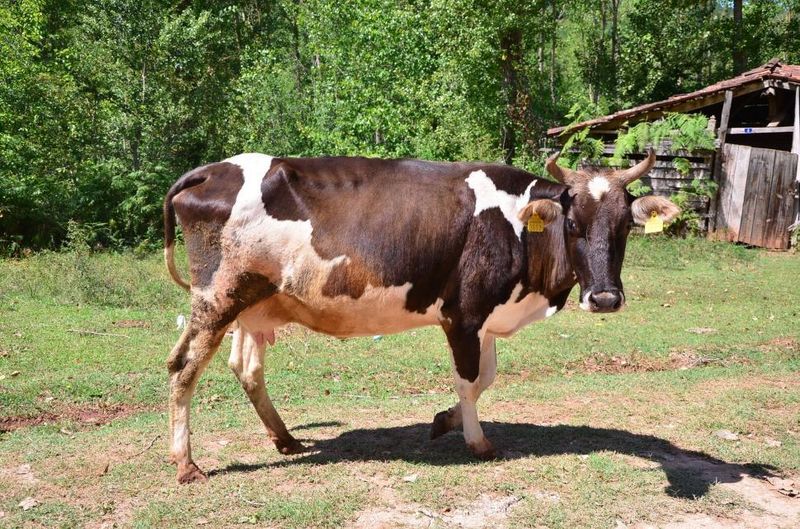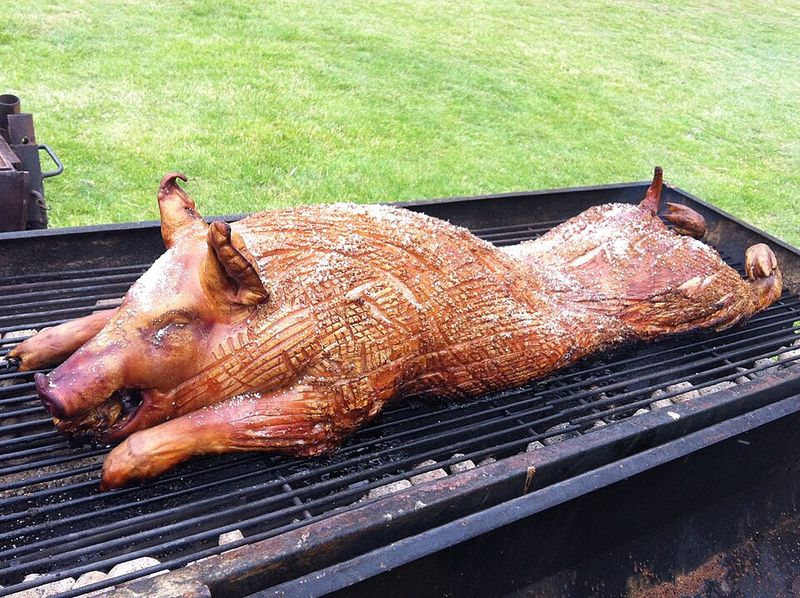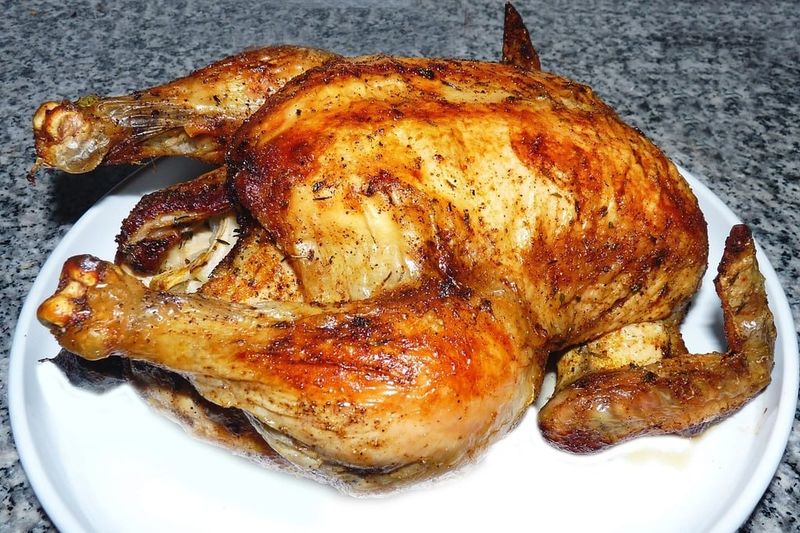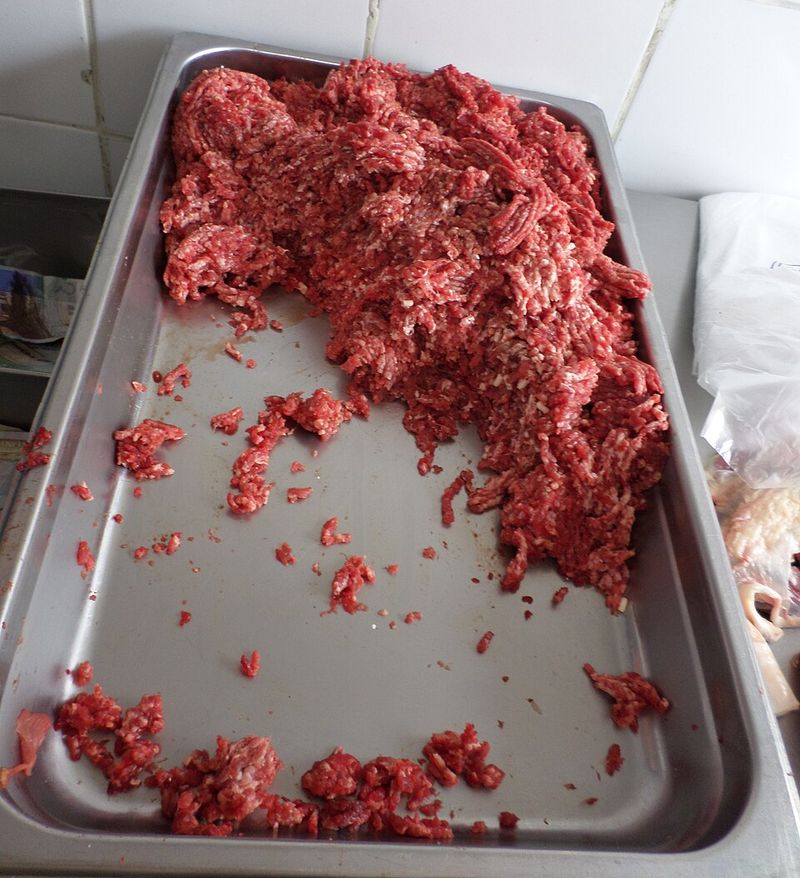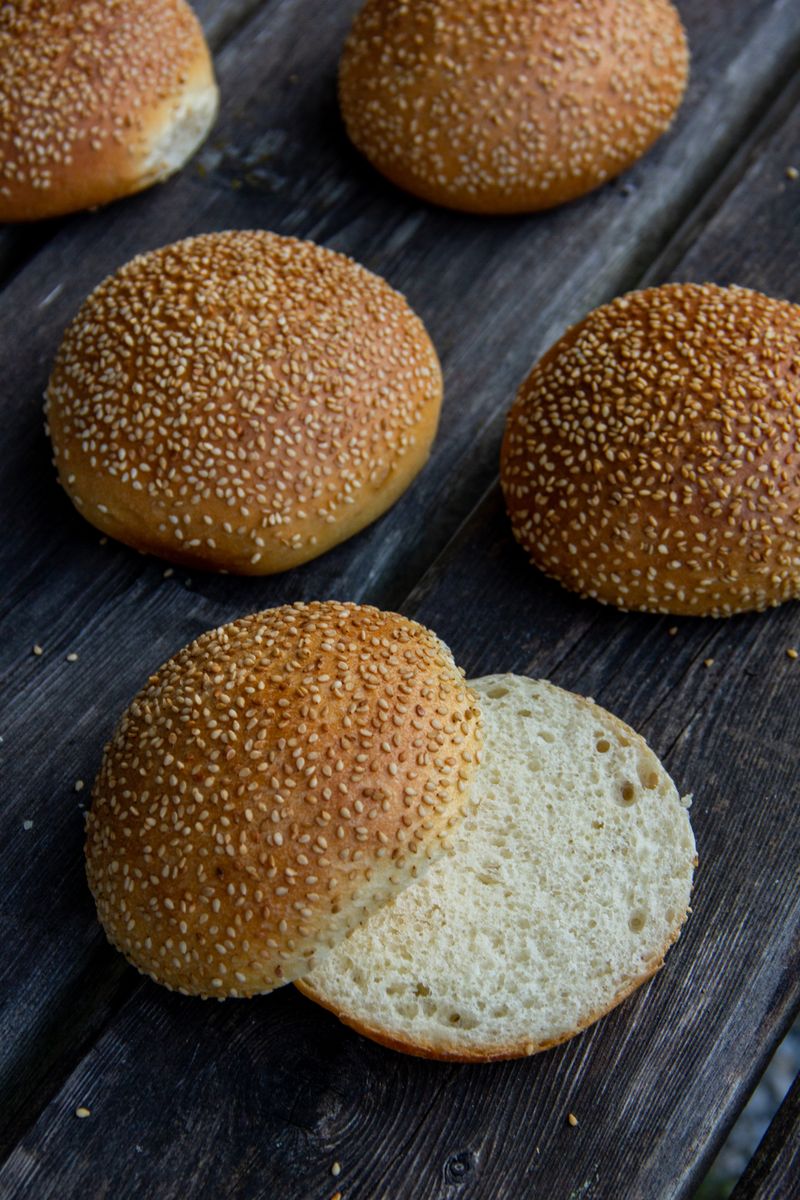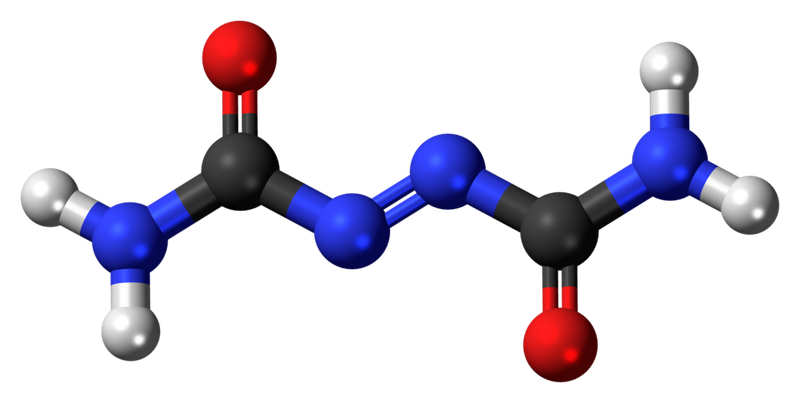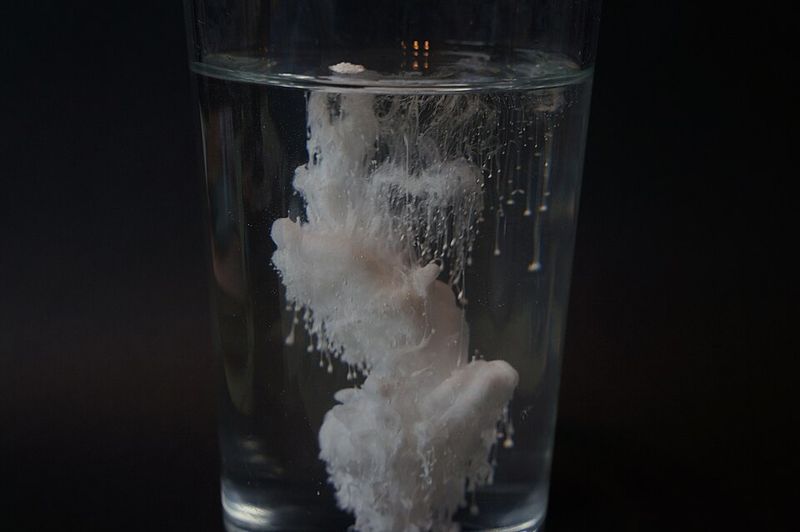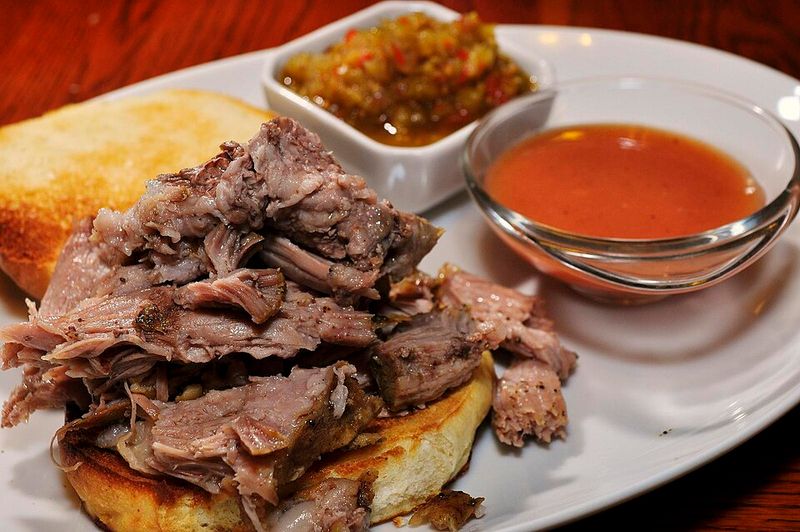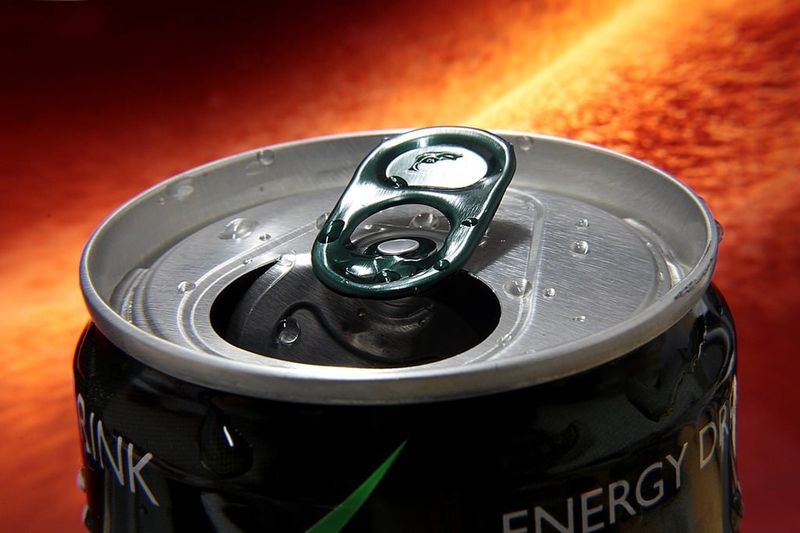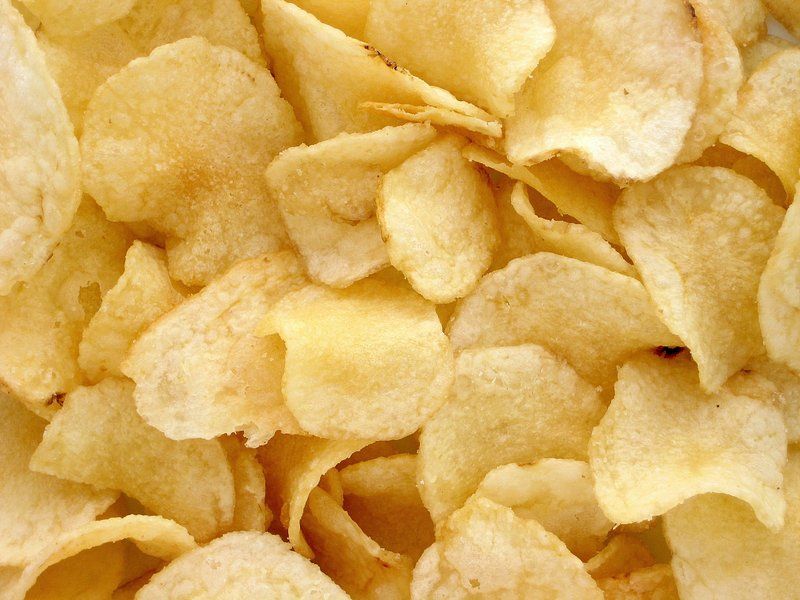Americans love firing up the grill for juicy burgers, ribs, and hot dogs, but many of our favorite BBQ staples contain ingredients that other countries have banned. From hormone-treated beef to certain food dyes, international regulators have drawn a hard line against additives and practices still common in U.S. kitchens. Here are eight popular American grill foods that face restrictions or outright bans when they cross borders.
1. Hormone-treated beef burgers
Many American cattle ranchers use growth-promoting hormones to help livestock gain weight faster and more efficiently. The practice saves money and boosts meat production across the country. But the European Union sees things differently and has banned imports of hormone-treated beef since 1989.
EU officials worry that hormone residues in meat might affect human health, especially for children. They only allow a small quota of certified hormone-free American beef to enter their markets. Countries like Russia and China have also restricted or banned hormone-treated meat over similar concerns.
If you’re grilling burgers stateside, there’s a good chance they came from hormone-treated cattle, perfectly legal here but unwelcome abroad.
2. Pork ribs or hot dogs from pigs fed ractopamine
Ractopamine is a feed additive given to pigs in parts of the United States to produce leaner meat with less fat. Farmers say it helps them raise healthier animals while meeting consumer demand for lean pork. However, the European Union, China, and more than 160 other countries have banned ractopamine in animal feed.
China enforces a zero-tolerance policy, meaning even trace amounts can get shipments rejected at the border. The EU’s food safety authority concluded there wasn’t enough data to prove the drug was safe for consumers or animals. Russia also bans ractopamine-fed pork.
Your Fourth of July ribs might be fine here, but they’d be contraband in Beijing or Brussels.
3. Grilled chicken from chlorine-washed poultry
Walk into any American supermarket and you’ll find chicken that’s been rinsed with antimicrobial chemicals like chlorine to kill bacteria such as salmonella. U.S. processors argue this step makes poultry safer to eat and reduces foodborne illness. The European Union disagrees and has prohibited chlorine-washed chicken since 1997.
EU regulators believe farmers should focus on hygiene throughout the entire production process rather than relying on chemical rinses at the end. They worry that chlorine washing might mask poor sanitation practices on farms and in slaughterhouses. The UK maintained this ban even after Brexit.
So those juicy grilled chicken breasts at your cookout? Perfectly legal here, but they’d never pass muster in Europe.
4. Ground beef that was CO-packaged to keep it bright red
Ever notice how some ground beef stays bright red in the package for days, even weeks? That’s often thanks to carbon monoxide gas used in modified-atmosphere packaging. The CO binds to the meat’s pigment and locks in that fresh-looking red color, making older beef appear just-purchased. American regulators approved this practice, saying it’s safe and doesn’t affect taste.
But European authorities banned CO packaging because they believe it can hide spoilage and trick consumers into buying meat that’s past its prime. Without the telltale browning, shoppers can’t easily judge freshness by sight.
Your burger meat might look picture-perfect in the fridge, but that same packaging trick is illegal across the Atlantic.
5. Burger or hot-dog buns made with potassium bromate
Potassium bromate is a dough conditioner that helps bread rise higher and gives buns a fluffy, uniform texture bakers love. Many American commercial bakeries still use it, and it’s legal in parts of the United States under FDA rules. The catch? It’s classified as a possible carcinogen.
The European Union, United Kingdom, Canada, China, India, and Brazil have all banned potassium bromate in food over cancer concerns. Studies on lab animals showed links to kidney and thyroid tumors when exposed to high doses. California requires a cancer warning label on products containing it.
Those soft burger buns at your BBQ might contain bromate, perfectly legal here but outlawed almost everywhere else in the world.
6. Buns made with azodicarbonamide (the yoga-mat chemical)
Azodicarbonamide, often called ADA, is a dough conditioner that whitens flour and makes bread dough easier to handle. It’s also used in yoga mats and shoe soles, which earned it the nickname “yoga-mat chemical.” The FDA allows ADA in U.S. baked goods at low levels, calling it safe for consumption.
But the European Union doesn’t authorize it for food use, and Australia and Singapore have outright banned it. When ADA breaks down during baking, it can form trace amounts of chemicals linked to cancer and respiratory issues in workers. Public pressure led Subway and other chains to remove it voluntarily.
Your hot-dog buns might still contain ADA, legal stateside but unwelcome in most developed nations abroad.
7. Citrus sodas containing brominated vegetable oil (BVO)
Brominated vegetable oil helps citrus flavoring stay suspended in sodas instead of floating to the top, giving drinks a consistent taste. For decades, BVO appeared in popular American soft drinks and sports beverages. The European Union and Japan banned it years ago after studies linked bromine buildup to memory loss and skin problems.
The FDA finally caught up and finalized a U.S. ban effective August 2, 2024, so new products can’t contain BVO anymore. However, older bottles might still be sitting in pantries or on store shelves from before the ban took effect. Major brands like Coca-Cola and PepsiCo had already reformulated their recipes by then.
Check your cooler—those citrus sodas might be legacy products from the BVO era.
8. Cupcakes or sprinkles with titanium dioxide (E171)
Titanium dioxide gives frosting, candies, and sprinkles their brilliant white color and makes other colors pop more vividly. American bakers and confectioners use it freely in everything from cupcakes to chewing gum. It’s considered safe by U.S. regulators at current usage levels.
But the European Union banned titanium dioxide (labeled E171) in all food products starting in 2022. EU scientists found they couldn’t rule out genotoxicity concerns—meaning it might damage DNA. France had actually banned it even earlier, in 2020, ahead of the EU-wide prohibition.
Those picture-perfect white cupcakes and rainbow sprinkles at your backyard BBQ dessert table? They’d be illegal to serve at a cookout in Paris or Berlin because of that bright white pigment.
9. Store-bought tortillas/baked goods preserved with propylparaben
Walk down any grocery aisle and you’ll find tortillas and baked goods that stay fresh for weeks, thanks to preservatives like propylparaben. This chemical keeps mold away and extends shelf life, making it popular with manufacturers. However, the European Union has banned propylparaben in foods because studies suggest it might mess with hormones in our bodies.
Countries like France and Denmark worry that these preservatives could affect reproductive health, especially in young people. While the FDA still allows it in the United States, many other nations have decided the risk isn’t worth taking. If you’re concerned, look for preservative-free options at your local bakery or farmers market instead of mass-produced products.
10. Buns made with chemically bleached flour
Ever wonder why American burger buns are so perfectly white and fluffy? Manufacturers often bleach flour with chemicals like chlorine gas and benzoyl peroxide to achieve that bright appearance and soft texture. The process speeds up aging that would naturally happen over time, but it also strips away nutrients.
Most European countries have outlawed chemically bleached flour, preferring naturally aged alternatives instead. They believe the bleaching agents leave behind residues that could be harmful when consumed regularly over time. Australian and Chinese regulators have also restricted these whitening chemicals in bread products.
Whole grain buns or those made with unbleached flour offer healthier alternatives for your next cookout.
11. BBQ sauce/chips flavored with certain “liquid smoke” flavourings
That smoky flavor in bottled BBQ sauce and chips often comes from liquid smoke, a concentrated flavoring made by condensing smoke from burning wood. While it sounds natural, some liquid smoke products contain compounds that European regulators find concerning. Certain varieties may have high levels of polycyclic aromatic hydrocarbons, which form during incomplete combustion.
The EU has strict limits on which liquid smoke flavourings can be used in foods, and many American versions don’t meet their safety standards. Countries worry about potential cancer risks from these concentrated smoke compounds when consumed frequently. Some nations have banned specific liquid smoke products entirely from their food supply.
Making your own BBQ sauce or actually smoking meats avoids these additives completely.
12. Pink cherries or icings colored with Red Dye No. 3 (erythrosine)
Maraschino cherries and bright pink cake icings get their eye-catching color from Red Dye No. 3, also called erythrosine. This artificial coloring has been around since the early 1900s and makes desserts look more appealing at summer cookouts. But here’s the catch: studies in lab rats showed the dye could cause thyroid tumors at high doses.
Because of these findings, the FDA actually banned Red Dye No. 3 from cosmetics and topical drugs back in 1990, yet it remains legal in foods. The European Union and several other countries won’t allow it in their food products at all. Many American food companies have started switching to safer alternatives as consumer awareness grows.
13. Energy drinks for teenagers
Energy drinks have become hugely popular at American gatherings, especially among young people looking for a quick boost. These beverages pack massive amounts of caffeine—sometimes equivalent to several cups of coffee—plus other stimulants like taurine and guarana. A single can might contain 200 milligrams of caffeine or more, which is a lot for developing bodies.
Many European countries, including Denmark and Norway, have banned or heavily restricted energy drink sales to minors under 18. They’ve linked these drinks to heart problems, anxiety, and sleep issues in young consumers. Canada requires warning labels, while some nations only allow sales in pharmacies.
Water and natural fruit juices make much safer choices for keeping kids hydrated at your next barbecue.
14. “Fat-free” chips made with olestra
Back in the 1990s, olestra seemed like a miracle: a fat substitute that let people enjoy chips without absorbing calories from fat. Food scientists created this synthetic compound to pass through the body undigested, making “guilt-free” snacking possible. Unfortunately, olestra caused some pretty unpleasant side effects, including digestive problems and reduced absorption of important vitamins.
Canada and the European Union both refused to approve olestra for use in foods, citing health concerns and questionable benefits. The compound can prevent your body from absorbing fat-soluble vitamins like A, D, E, and K, which are essential for good health. Even in America, olestra products must carry warning labels about possible digestive effects.
Regular baked chips offer a better alternative without weird additives.
